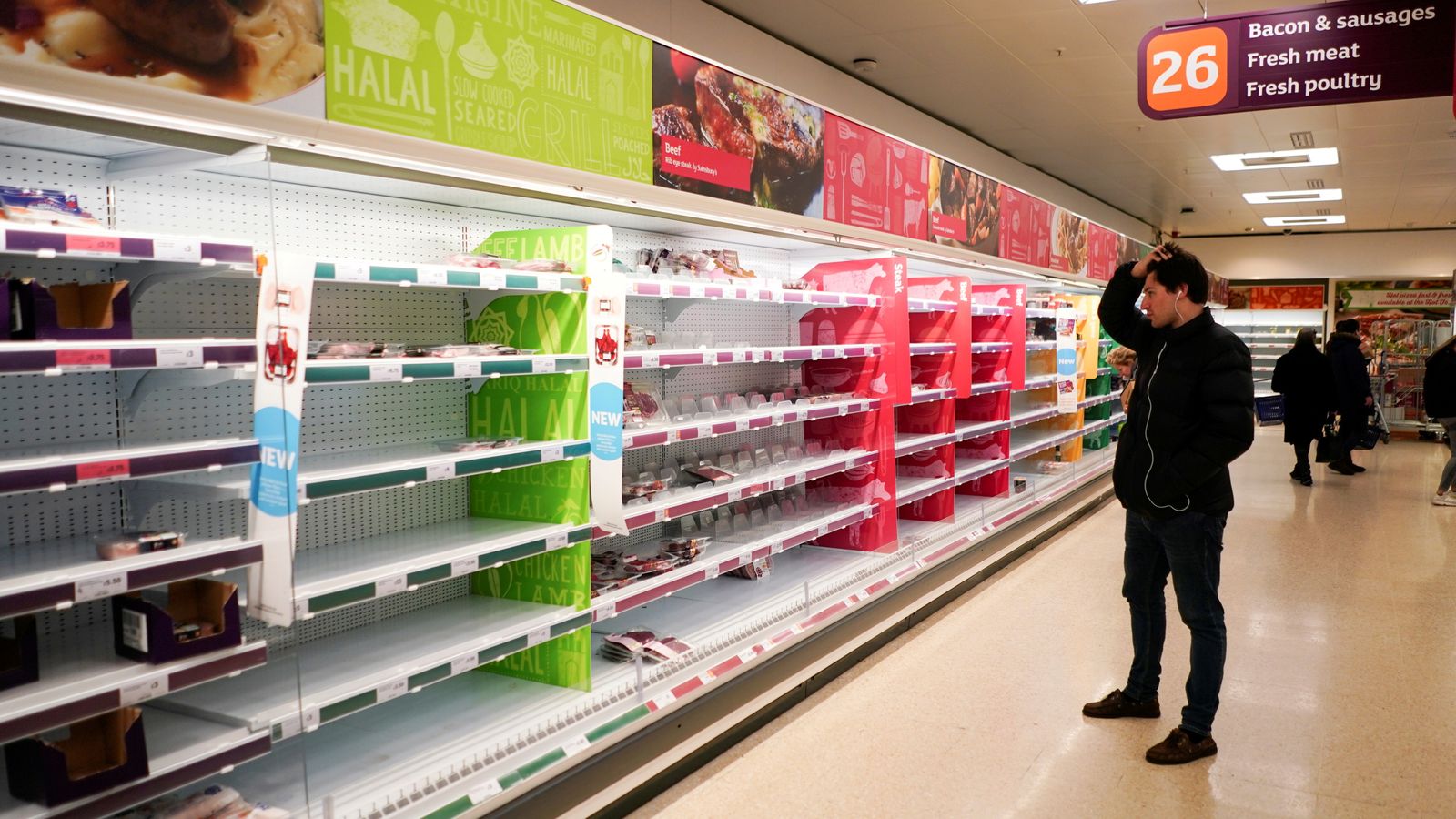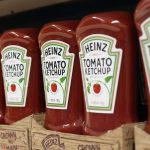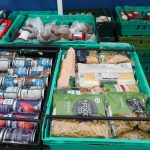The owner of two UK fertiliser plants whose shutdown last week threatened to spark a food supply crisis has agreed to restart production after talks with the government.
CF Industries produces carbon dioxide – a critical part of the food production process – as a by-product of manufacturing carried out at the sites in Billingham on Teesside and Ince in Cheshire.
But the US firm said last week that it had stopped work at the plants because of the surge in gas prices.
Norwegian company Yara also said it was reducing production at ammonia factories across Europe including one in Hull.
That created a crisis in the food industry because the CO2 which is a by-product of the fertiliser manufacturing process is used to stun farm animals before slaughter as well as in the vacuum packing process.
It prompted warnings that shoppers could start noticing shortages in poultry, pork and bakery products within days.
That piled pressure on ministers to act over a knock-on effect of the Europe-wide gas price crisis that threatened to have a major impact on consumers.
Energy supplier Green lines up insolvency advisers amid industry crisis
Boris Johnson says energy crisis is a ‘short-term problem’ and dismisses risk of Christmas disruption
Energy emergency, electric taxis and Britain’s newest bank
Now the government has reached agreement with CF Industries to restart carbon dioxide production at its UK sites following talks between the company and Business Secretary Kwasi Kwarteng.
Details of the deal between the government and CF Industries were expected to be revealed later.
It came as the prime minister told Sky News the energy crisis was a “short-term problem” and said he did not think there would be disruption to food supplies at Christmas.
The gas price spike is also having a big impact on domestic energy suppliers – with two smaller players going out of business last week.
Sky News also revealed on Tuesday that another firm, Green, had lined up insolvency advisers.
The crisis could result in state-backed loans being offered to the larger suppliers which will have to pick up the pieces by taking on their smaller rivals’ customers if they do go bust.
Buying gas on the wholesale market for all of those households affected – which could number in the millions – will proce costly at current inflated prices.
The related crisis in CO2 supply follows a previous shortage in 2018 – and the meat industry had voiced fears that the latest one could be worse.
It has said the product plays a “critical and irreplaceable role in the food and drink manufacturing process”.
The food industry has already been wrestling with other big supply chain challenges created by Brexit and the pandemic – including a shortage of 100,000 HGV drivers and a lack of workers in meat processing factories.






















